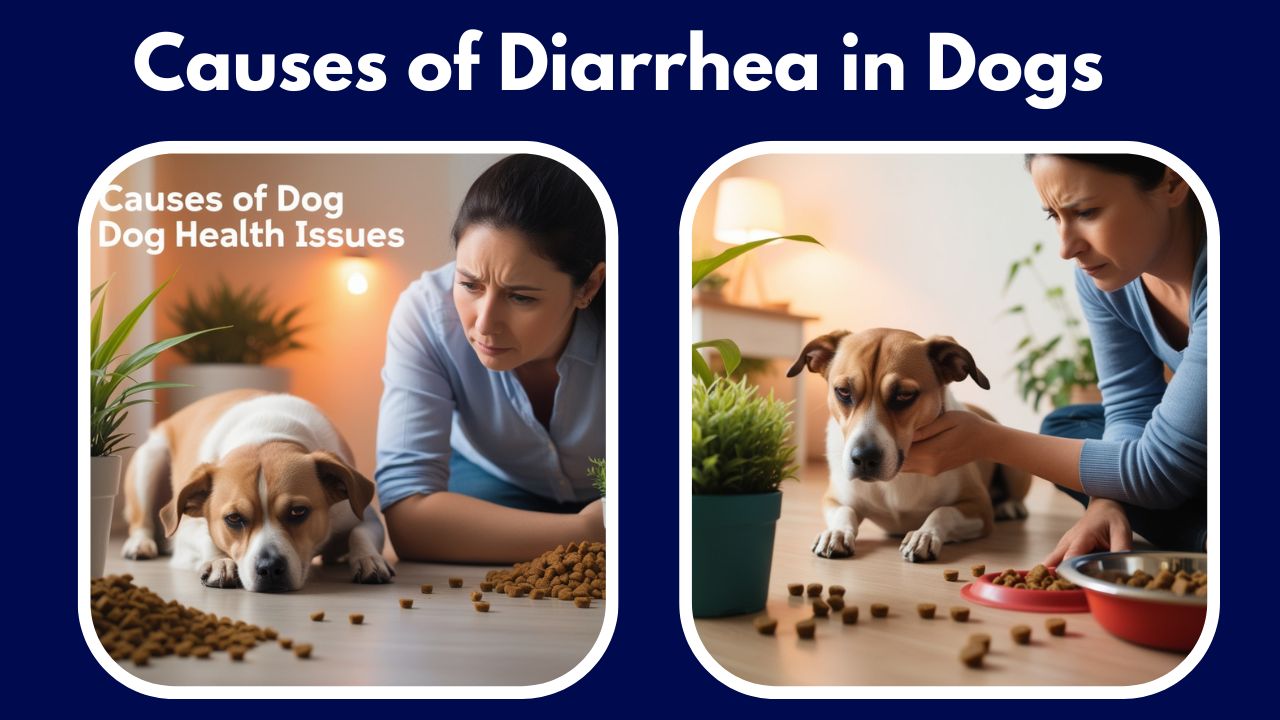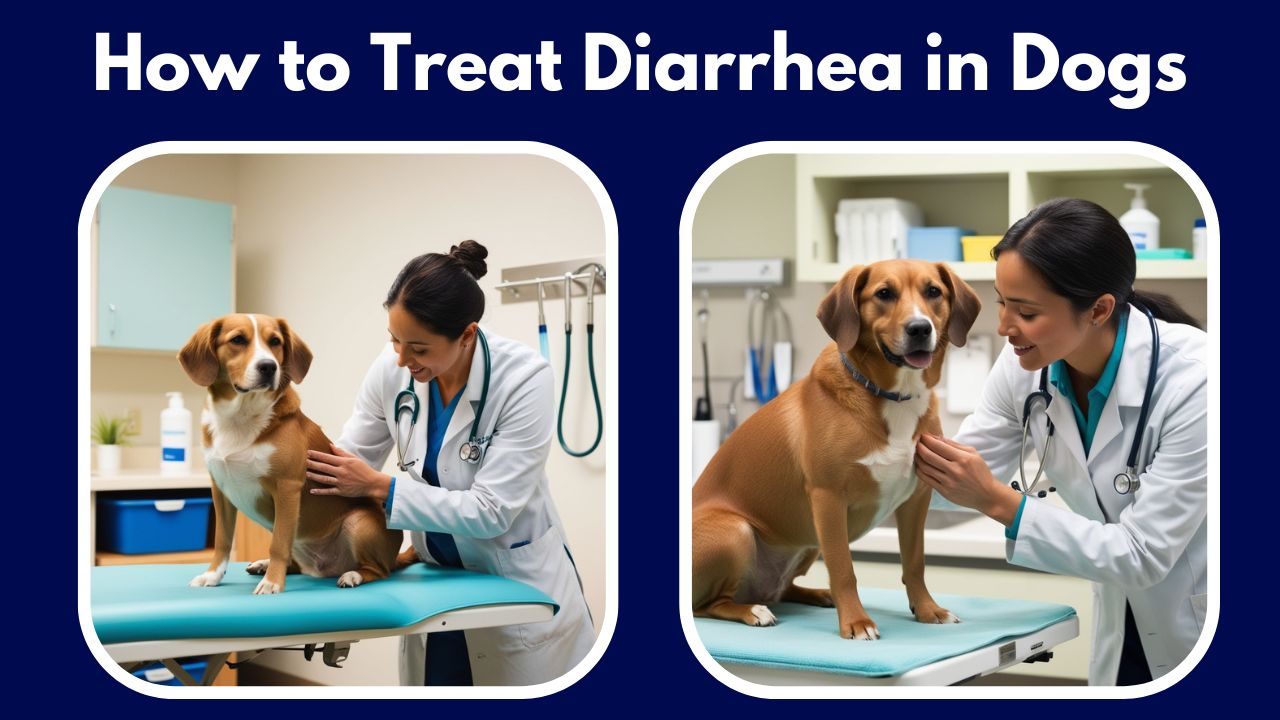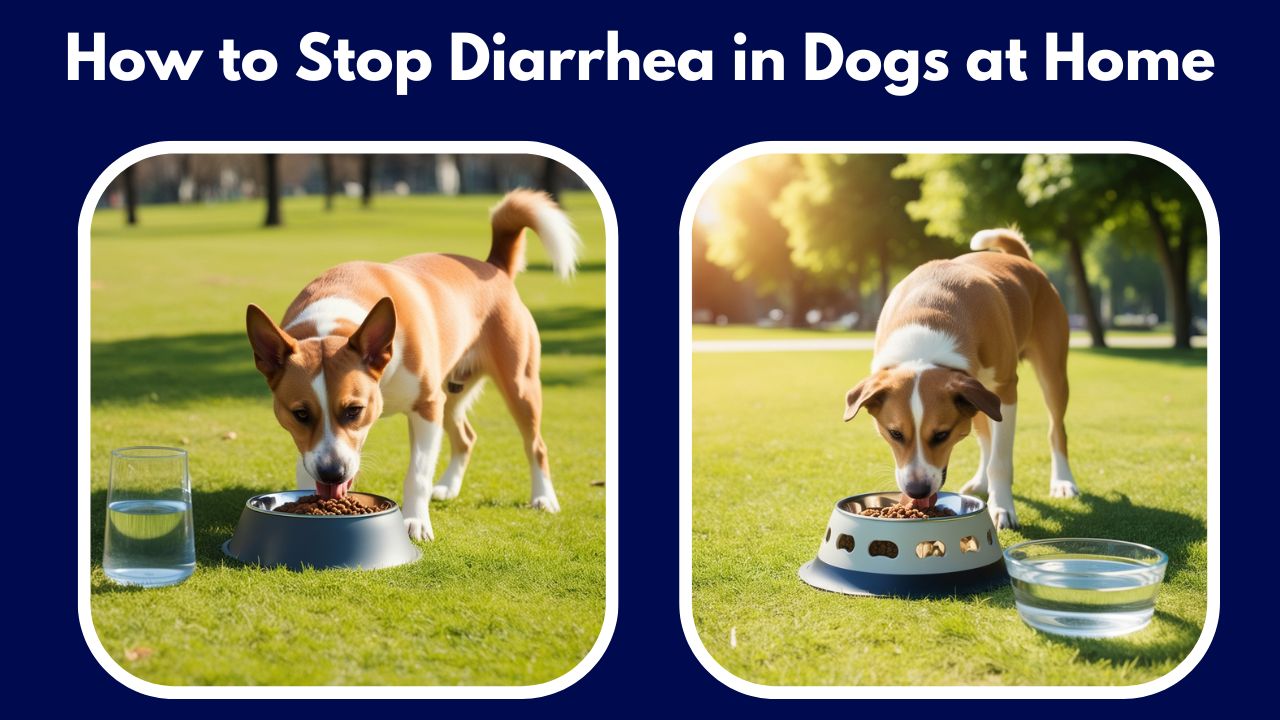Apparently, diarrhea is a common issue that has negative impacts on pet health; however, at the same time, it carries positive impacts if cured timely. Sometimes, dogs ingest lethal bacteria in their food due to their aggressive nature, which can potentially threaten their lives. So, in many cases, they stomach wash it by immediately loosening the pop.
Many pet owners frequently encounter diarrhea in their dogs. Occasionally, a dog might experience diarrhea while remaining lively, playful, and exhibiting normal behavior.
What are the common symptoms of diarrhea in dogs?
Common symptoms of diarrhea in dogs include:
- Loose or watery stools
- Frequent bowel movements (increased urgency)
- Straining to defecate (even after passing stool)
- Blood or mucus in the stool
- Vomiting (sometimes accompanies diarrhea)
- Abdominal discomfort or bloating
- Lethargy or tiredness
- Loss of appetite
- Dehydration (due to fluid loss)
- Weight loss (in prolonged cases)
- Fever (in some cases, especially with infections)
Causes of Diarrhea in Dogs

There isn’t one reason that causes dog diarrhea. There are several contributors to the issue.
Some are easily detected, and some require proper tests or screening to catch the problems. However, most causes can be observed at home and, if taken measures, can be successfully cured with little attention. Here are some common causes;
1, Infections
Bacteria such as Salmonella Parvovirus, E. coli, or parasites like Giardia can cause diarrhea and infection.
- Viral Infections
Parvovirus and coronavirus can cause severe diarrhea. However, puppies are more prone to viral disease.
Common symptoms of viral infection include lethargy and bloody diarrhea.
- Dietary Changes or Indiscretion
Dog stomach upsets with sudden diet changes or spoiled food if supplied regularly.
- Foreign Objects
Ingesting non-food items can lead to diarrhea.
- Medications and Antibiotics
Certain medications disturb gut bacteria, which can lead to dog digestive issues.
- Stress and Anxiety
Stress, anxiety, or environmental changes can also seem to be potential diarrhea propellers.
- Food Allergies or Intolerances
Proteins like beef or chicken may trigger allergies. Grains like wheat can cause chronic gastrointestinal issues. Common symptoms include loose stools and itching.
- Underlying Health Conditions
Inflammatory bowel disease, pancreatitis, or even cancer can cause chronic diarrhea.
How to Treat Diarrhea in Dogs

There are several treatment options available, which depend on the severity of the condition and its underlying cause. If your dog exhibits diarrhea but is still acting fine, consider discussing options that may suit them. More details can be found in my dog has diarrhea but is acting fine.
1). Fasting
- Withhold food for 12 to 24 hours.
- Provide plenty of fresh water.
- Monitor for signs of improvement.
- Gradually reintroduce food afterward.
2). Bland Diet
- Start with boiled chicken and rice.
- Feed small portions multiple times.
- Avoid adding spices or sauces.
- Transition back to regular food after 2-3 days.
3). Hydration
- Ensure access to clean water.
- Offer an electrolyte solution if needed.
- Watch for signs of dehydration.
- Seek vet help for severe cases.
4). Medications
- Consult your vet for appropriate meds.
- Antibiotics for bacterial infections.
- Antiparasitic for parasites.
- Anti-inflammatories to reduce inflammation.
5). Veterinary Care
- Seek help if diarrhea lasts over 48 hours.
- Look for blood in the stool.
- Request diagnostic tests as needed.
- Monitor for other concerning symptoms.
6). Probiotics
- Restore gut health with probiotics.
- Choose dog-specific supplements.
- Consult your vet for recommendations.
- Use regularly to prevent future issues.
When to Seek Veterinary Care
Mostly dog diarrhea is cured on their own, if it still persists after taking care precautionary measures, consult a veterinarian to address the issue in detail. Contact your vet if:
- It lasts more than 48 hours.
- You notice vomiting along with diarrhea.
- There is a presence of blood in the stool.
- Your dog shows signs of dehydration.
- The dog seems to be in pain or is acting unusually.
How to Stop Diarrhea in Dogs at Home

Once you know what might be causing your dog’s diarrhea, you can try to treat it at home.
Here’s a step-by-step guide to follow:
- Add plain, unsweetened pumpkin to your dog’s food.
- Offer small amounts of water from boiled rice to alleviate diarrhea.
- Use specific probiotics to restore the balance of gut bacteria.
- Provide homemade, salt-free bone broth to nourish your dog.
- Add a small amount of fresh ginger to food to reduce nausea and inflammation.
- Give plain, unsweetened yogurt in small amounts for natural probiotics.
- Feed a simple diet of boiled chicken and plain white rice.
- Cook plain oatmeal and mix it into meals for added fiber and easy digestion.
- Use canned sweet potato in small amounts to help firm up stools.
- Offer electrolyte solution to promote hydration.
Prevention of Dog Diarrhea
Preventing diarrhea in dogs is better than dealing with it. Here are some tips to avoid future stomach issues:
Always make diet changes slowly over 7-10 days. Human food can upset a dog’s stomach. Avoid giving them fatty or spicy foods. Keep up with your dog’s vaccinations and parasite prevention. Supervise your dog when outdoors to ensure they aren’t eating harmful items.
How to Treat Vomiting and Diarrhea in Dogs
When it comes to fecal consistency changes, vomiting is often noted to be more frequent and significant in certain cases.
When both symptoms manifest, it’s advisable to act quickly because they can lead to severe dehydration within a short span.
1) Stop All Food Immediately
Just like with diarrhea, the first step is to stop feeding your dog for 12-24 hours to let their stomach settle.
2) Offer Ice Chips or Small Sips of Water
Dogs with both vomiting and diarrhea dehydrates quickly. Offer small amounts of water or ice chips every few hours. Too much water at once may trigger more vomiting.
3) Use a Bland Diet
Slowly reintroduce a bland diet as vomit stops. Stick to boiled chicken or turkey with plain rice. Gradually transition back to their regular diet over several days once stable.
4) Check for Toxic Ingestion
If your dog ate something toxic, it might lead to vomiting and diarrhea. Keep an eye on any plants, chemicals, or food scraps present in vomits or stool.
Final Thoughts
Dealing with diarrhea in dogs can be challenging, but understanding the causes and treatments can help you manage it effectively. If your dog’s diarrhea persists after 2-3 days of treatment, use Search a Vet to find the most reliable veterinarians in your area.
It connects pet parents like you to top veterinarians, animal hospitals, and veterinary practices to get online appointments and consultations. They enable pet parents to address common pet concerns and get immediate veterinarian help at the nearest clinic.
FAQs
1. How to treat diarrhea in dogs quickly?
You can stop diarrhea by withholding food for 12-24 hours and then introducing a bland diet. Ensure your dog stays hydrated throughout the process. If the diarrhea persists for more than two days, consult a veterinarian.
2. Can stress cause diarrhea in dogs?
Yes, stress is a common cause of diarrhea in dogs. Situations that trigger stress-related digestive issues such as, moving to a new home, boarding, meeting new pets, environmental changes Avoid these things if not necessary.
